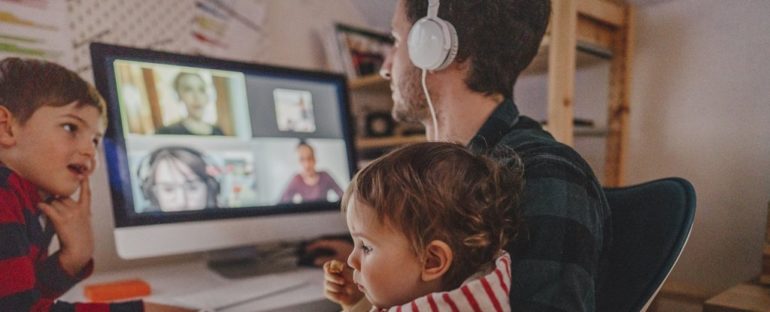It’s easy to focus on all the negatives amid a traumatic global pandemic, but there are some positives, too.
A new online survey has found the psychological outcomes of New Zealand’s super strict lockdown were not all bad.
The study mirrors other mental health studies on COVID-19 in New Zealand, which had one of the most stringent lockdowns in the world. Instead of asking questions about loneliness, depression, and drug use, researchers wanted to know whether participants experienced any positive aspects during the stage 4 lockdown last April.
Of the 2,010 participants surveyed, nearly half reported experiencing a personal silver lining, and over a third said they’d experienced a silver lining for society as a whole.
“Lockdown represented a major flashpoint in people’s lives and created an opportunity to stop, take stock, and to reflect and connect with others,” says psychologist Matthew Jenkins from Otago University in New Zealand.
“Many people reported that kindness and helping behaviors became more common over this period.”
It’s still unclear exactly what long-term effects this traumatic experience will have on people’s lives going forward, but at least in the moment, it seems there was some amount of post-traumatic growth occurring at the same time as post-traumatic stress.
A public survey conducted halfway through New Zealand’s stage 4 lockdown found levels of stress, anxiety, and depression rose higher than normal, especially among younger people.
Whether or not this was due to the lockdown itself or the wider threat of COVID-19 remains unclear. However, one of the first longitudinal studies on the mental toll of the pandemic found social distancing measures and mask mandates were associated with a greater sense of positive mental health.
Letting people take control of their lives and aid others appeared to help relieve some of the stress they felt, while a loss of social support was the strongest and most consistent predictor of anxiety and depression.
The most recent survey in New Zealand found something similarly hopeful about locking down. While isolation measures kept the public away from each other physically, many participants described “an old fashioned sense of community and caring… that was not apparent before lockdown.”
This enhanced community spirit appears born from the very trauma of the pandemic itself. Suddenly, it seems, people became far more aware of those around them and their place in the world. This increased feeling of social connectedness may have even helped them cope with the unusual times they were living in.
A recent study in Turkey, for instance, found a sense of belonging was associated with greater psychological well-being among students during the pandemic.
Even above simply surviving, people were also finding ways to thrive in these strange times. In the survey, many said they took the time to personally reflect on their values and future so they could “decide what is really important.”
Just over 30 percent of respondents reported feeling a greater sense of perceived agency, setting their own hours for work or exercising more. “I can stay at home and pursue the hobbies I enjoy,” one respondent explained.
During lockdown, people generally valued materialism less – “not wasting money on stuff one wants rather than what one needs” – and cherished family and friend time more than ever.
In fact, more than half the respondents said they were grateful for their new social interactions and a renewed sense of community cohesion. Some even said they had received grateful comments from older adults in their community who thought they had been forgotten.
“Because of the social distancing measures in place, technology became a major way for people to connect socially and for work via online services such as video conferencing,” says Jenkins.
“One participant reported they ‘got to speak with my Dad, who lives overseas, daily’ while another joined a global online knitting group to maintain social interactions.”
A clear and effective response from the government is obviously key in this. Many participants in the New Zealand survey said they were happy to comply with government restrictions because it made them feel like they were doing their bit for their community.
These sacrifices made some individuals feel like they were contributing to the greater good, helping to keep vulnerable members of the community as safe as possible.
“This reasoning highlights the crucial role of clear government messaging,” the authors write.
“The New Zealand government provided daily updates on case numbers, recoveries, and testing; the high transparency received international recognition.”
By keeping the public abreast of the pandemic’s reality and what individuals could do to help, the New Zealand government appears to have bestowed a strong sense of agency and, therefore, high compliance for pandemic rules among its citizens.
The public understood the lockdown rationale and what it would take to contain the virus. As one respondent put it: “I believe the level 4 lockdown has helped the country keep the virus under control.”
In May of last year, after a successful lockdown, the prime minister thanked her ‘team of five million‘ for all their hard work in eliminating the virus.
This gave New Zealanders a renewed sense of national unity and pride, which one respondent said they were honored to be a part of. “[W]e may be a small country,” they said, “but we are doing an amazing job.”
Such silver linings might not hold for other countries, especially those that have not enforced strict lockdown measures to contain or eliminate the spread of the novel coronavirus. That said, the authors hope these results will help reveal how governments and mental health practitioners can help the public cope during prolonged and stressful events like the current pandemic.
“Our findings show that in a time of turmoil, unrest and psychological distress, many people nonetheless found silver linings,” the authors conclude.
“We also speculate that, despite the impact of the lockdown, many people had their psychological needs for social connectedness and autonomy met, and these were likely to have influenced compliance with lockdown measures.”
The study was published in PLOS ONE.



